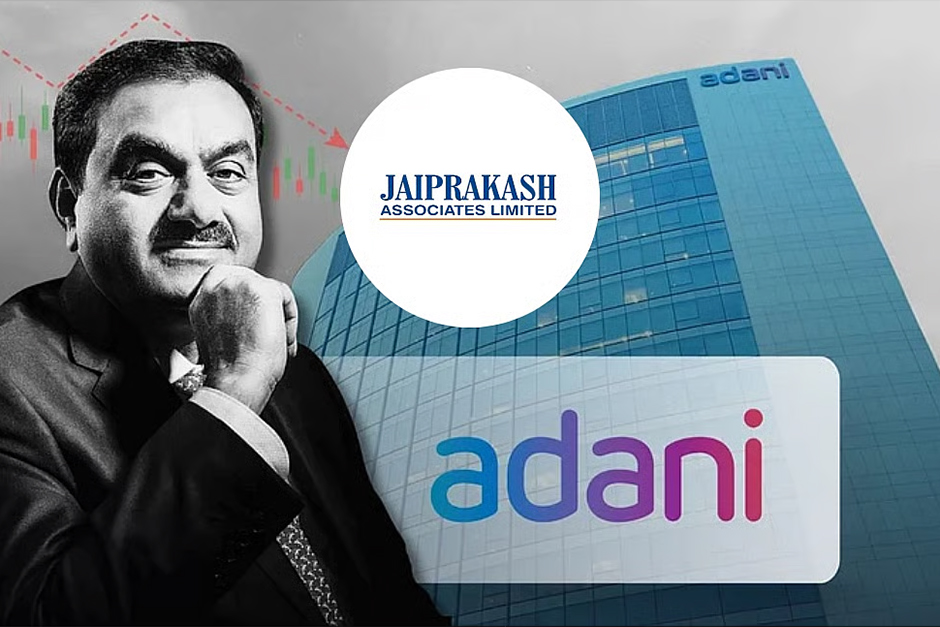In a significant development poised to reshape the Indian cement landscape, Adani Cement, a subsidiary of the Adani Group, has successfully secured the crucial nod from the Committee of Creditors (CoC) to acquire the cement and power assets of the debt-laden Jaiprakash Associates Limited (JPA). This move marks a pivotal step in the ongoing resolution process for the bankrupt conglomerate and further solidifies Adani’s aggressive expansion strategy within India’s infrastructure and core industries sector.
Creditors Greenlight Adani’s Bid
The resolution professional overseeing Jaiprakash Associates’ insolvency proceedings under the Insolvency and Bankruptcy Code (IBC) had put various assets of the company up for sale. Among the multiple contenders, Adani Cement emerged as the preferred bidder for key assets, including JPA’s integrated cement plant in Madhya Pradesh, its grinding units, and associated power plants. The Committee of Creditors, representing various banks and financial institutions owed billions by JPA, voted overwhelmingly in favour of Adani’s resolution plan, signaling their confidence in the proposal’s ability to maximize recovery.
Jaiprakash Associates, once a prominent name in India’s infrastructure and real estate sector, has been grappling with immense debt for several years, leading to its eventual admission into the Corporate Insolvency Resolution Process (CIRP) by the National Company Law Tribunal (NCLT). The sale of these assets is a critical step towards addressing the company’s financial woes and providing a much-needed recovery avenue for its creditors. Sources close to the proceedings indicate that the Adani proposal was not only financially robust but also offered a comprehensive plan for operational continuity and value maximization.
Strategic Play in the Cement Sector
For the Adani Group, this acquisition is a logical extension of its ambitious foray into the Indian cement industry. Having entered the sector with the colossal acquisition of Holcim’s India assets – Ambuja Cements and ACC – in 2022, the group immediately became the second-largest cement player in the country. The integration of Jaiprakash Associates’ assets is set to further augment Adani Cement’s manufacturing capacity, geographical footprint, and market share, particularly in the strategically important North and Central Indian regions.
The assets acquired from JPA include a significant operational capacity of cement grinding units and a clinker unit, along with captive power plants, which are crucial for ensuring cost-efficient operations. This vertical integration reduces reliance on external power sources and enhances supply chain resilience. “This acquisition perfectly aligns with Adani’s vision of becoming a dominant force in India’s infrastructure backbone,” remarked an industry analyst. “Their aggressive inorganic growth strategy in core sectors like cement, energy, and ports demonstrates a clear long-term commitment to nation-building, leveraging operational synergies and scale.”
The move is expected to bolster Adani Cement’s ability to compete more effectively with the market leader and other established players, fostering a more competitive environment within the sector. The increased capacity and wider distribution network gained through JPA’s assets will enable Adani to cater to the growing demand for cement, driven by India’s robust infrastructure development agenda and housing growth.
Implications and What Lies Ahead
While the CoC’s approval is a major hurdle cleared, the acquisition still awaits final approval from the National Company Law Tribunal (NCLT). Once sanctioned by the NCLT, the ownership transfer and integration process will commence. For Jaiprakash Associates, the sale provides a crucial, albeit partial, resolution to its massive debt pile, offering some solace to its beleaguered creditors. However, the future of the remaining parts of the Jaiprakash Group will depend on further resolution efforts and asset monetisation.
The Adani-JPA deal underscores the increasing trend of consolidation within the Indian cement sector, as larger, financially stronger players look to expand their footprint through strategic acquisitions. It also highlights the continued efficacy of the IBC framework in facilitating the resolution of distressed assets, providing a structured mechanism for creditors to recover dues and for assets to find new, productive ownership. As Adani Cement prepares to integrate these new capacities, the market will keenly watch the operational synergies and strategic advantages that this significant acquisition will bring to India’s burgeoning cement industry.




